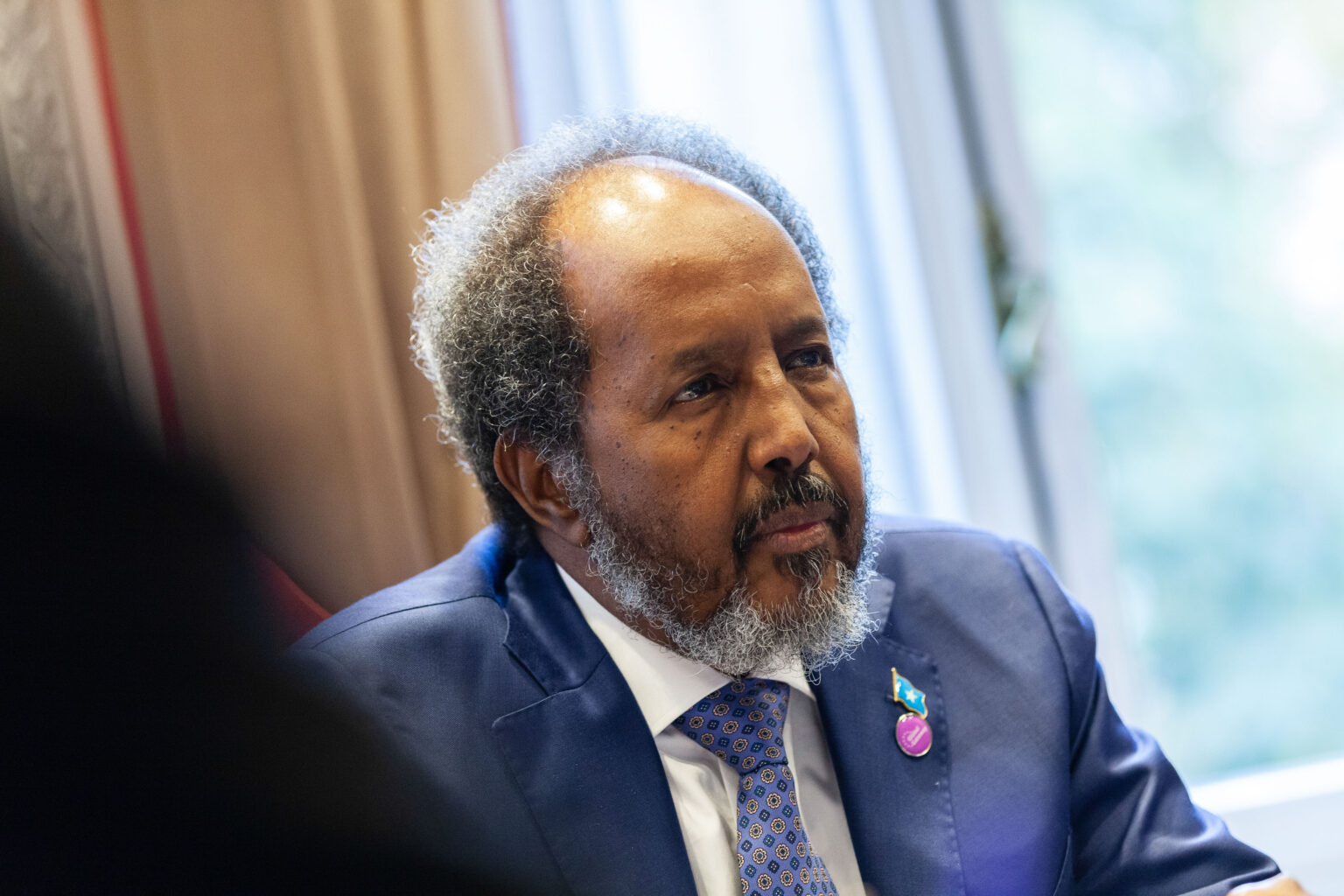Mogadishu — As Hassan Sheikh Mohamud (HSM) gears up for his transition to a controversial “One-Person-One-Vote” (1P1V) electoral system, slated for 2026, part of coercive tactics by his government have sparked fears of electoral fraud, drawing unsettling comparisons to the ill-famed 1969 Philippine election under Ferdinand Marcos. An analyst, Rashid Abdi has reignited concerns with some commenters warning that history may be repeating itself in Federal government of Somalia (FGS).
Rashid shared reports that FGS, led by HSM, is using heavily armed security teams to force Mogadishu residents to register for the 1P1V system. “There are reports the Somali government is using coercive tactics to force residents of Mogadishu to register for HSM’s so-called ‘One-Person-One-Vote’ (OPOV),” Abdi citing accounts that mention intimidation and compulsion.
A document from the Office of the Secretary General, dated 31 December 2023, further revealed that the electoral commission directed civil servants to register for the polls—a move that contradicts Somalia’s 2012 Constitution, which mandates that public employees act solely in the public interest, free from coercion. Invoking the spectre of Ferdinand Marcos, whose 1969 presidential campaign in the Philippines became a notorious benchmark for electoral malfeasance. “Ferdinand Marcos would be proud. His ‘Three Gs’ (guns, goons, gold) killed hundreds in the 1969 Philippine election to rig the vote. History repeating in Somalia?
Marcos’ 1969 campaign is widely regarded as one of the darkest chapters in Philippine electoral history. Time and Newsweek labeled it the “dirtiest, most violent, and most corrupt” election in modern Philippine history, coining the term “Three Gs”—guns, goons, and gold—to describe the administration’s tactics of vote-buying, terrorism, and ballot snatching. Marcos reportedly spent PHP100 for every PHP1 his opponent Osmeña spent, including PHP24 million in Cebu alone, and deployed the military to terrorize voters and opposition leaders.
The violence was particularly acute in Batanes, where paramilitary groups and hired guns took over, with hundreds killed in the process. The fallout from this election contributed to the Balance of Payments Crisis of 1970 and set the stage for Marcos’ declaration of Martial Law in 1972.
In Somalia, the parallels are striking. The country, which has not held a direct election since 1969 due to decades of conflict and a clan-based indirect voting system, is now attempting to transition to universal suffrage.
HSM pledged last year to end the indirect system, which has long been criticized for enabling corruption and vote-buying. Voter registration began in Mogadishu in April 2025, marking the first such exercise in over 50 years. However, the recent move of coercion have cast a shadow over the process. Reports of armed security teams compelling residents to register echo the intimidation tactics used by Marcos’ forces, while the electoral commission’s directive to civil servants raises questions about the independence of the process. Adding to the concerns, a 2013 report has resurfaced, alleging Mohamud’s involvement in a conspiracy with a US law firm to misappropriate public funds—a claim that, if true, suggests a pattern of corruption that could undermine the integrity of the 1P1V initiative, also pointed to foreign influences, alleging that Turkey may be backing Mohamud to maintain power and gain control over Somalia’s oil reserves, further complicating the electoral landscape.
The international community has been urged to monitor the situation closely. A 2024 article from Modern Diplomacy emphasized the need for resources like voter education materials and polling stations, as well as the presence of observers to deter fraud and coercion. Yet, with southern Somalia still grappling with a bloody Islamist insurgency and frequent natural disasters, the road to a credible democratic process remains fraught.
Rashid Abdi and Jibril Qoobey, Idil News Nairobi.

